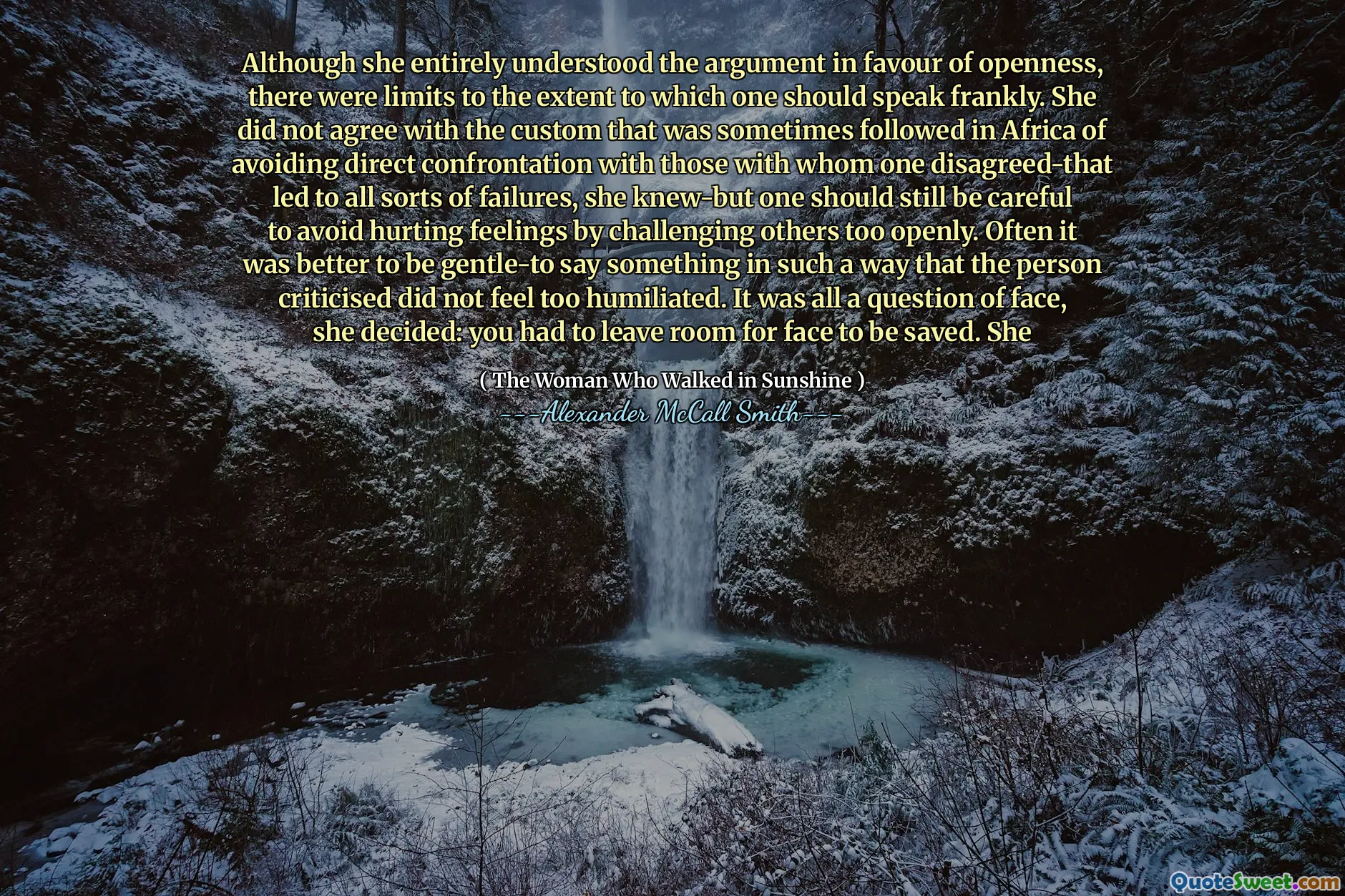
Although she entirely understood the argument in favour of openness, there were limits to the extent to which one should speak frankly. She did not agree with the custom that was sometimes followed in Africa of avoiding direct confrontation with those with whom one disagreed-that led to all sorts of failures, she knew-but one should still be careful to avoid hurting feelings by challenging others too openly. Often it was better to be gentle-to say something in such a way that the person criticised did not feel too humiliated. It was all a question of face, she decided: you had to leave room for face to be saved. She
In "The Woman Who Walked in Sunshine," the narrator reflects on the balance between honesty and sensitivity in communication. While acknowledging the arguments for being open, she believes that there are appropriate limits to how candid one should be, particularly to avoid causing unnecessary distress. Although she does not endorse a style of conversation that shies away from disagreement, she emphasizes the importance of maintaining respect and gentleness when critiquing others.
The narrator identifies the cultural importance of preserving one's dignity, or "face," in discussions. This perspective suggests that it is often more effective to express criticism in a considerate manner, allowing room for emotional preservation. Therefore, while expressing disagreement can be essential, it is equally important to do so thoughtfully, ensuring that relationships remain intact and feelings are respected.











